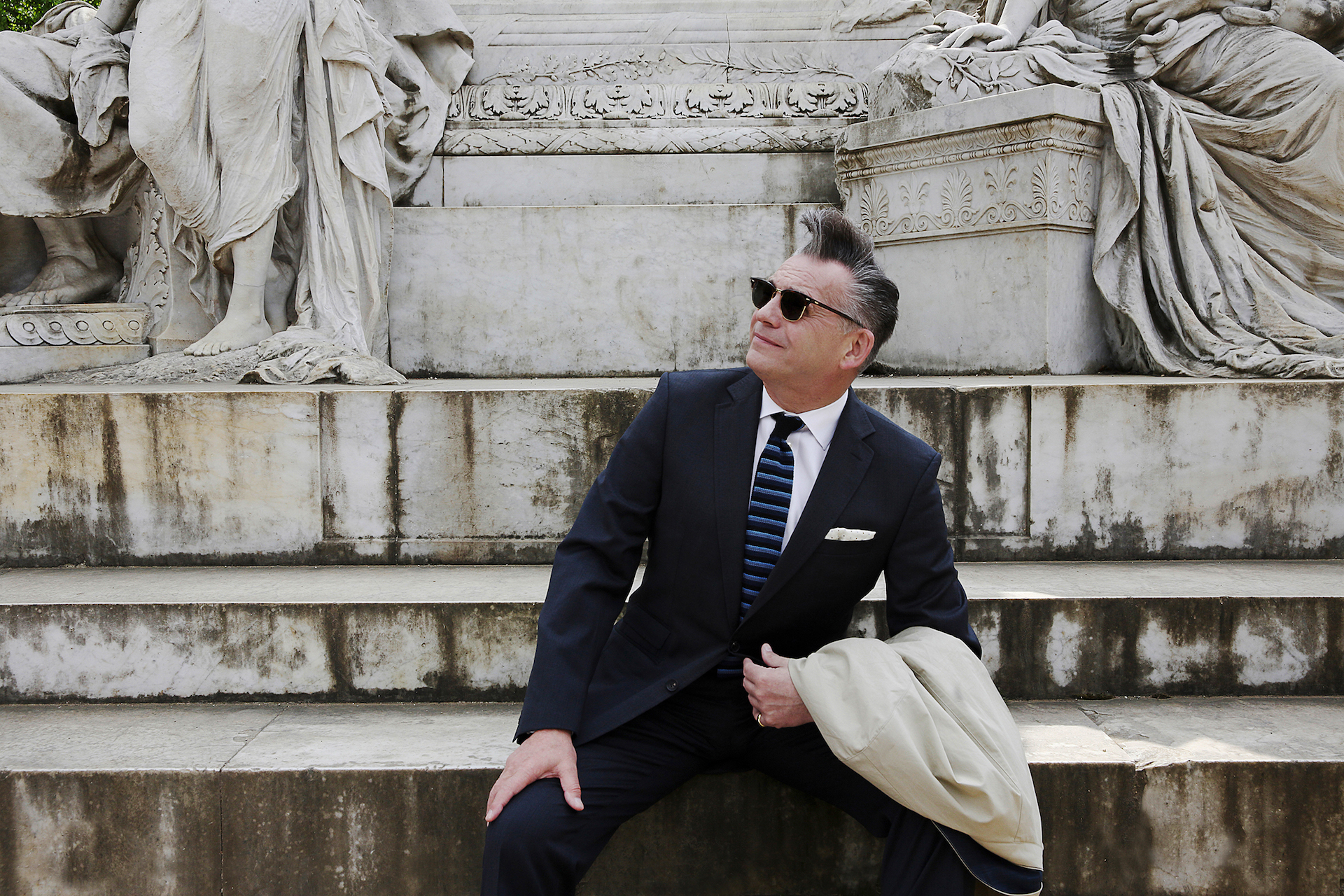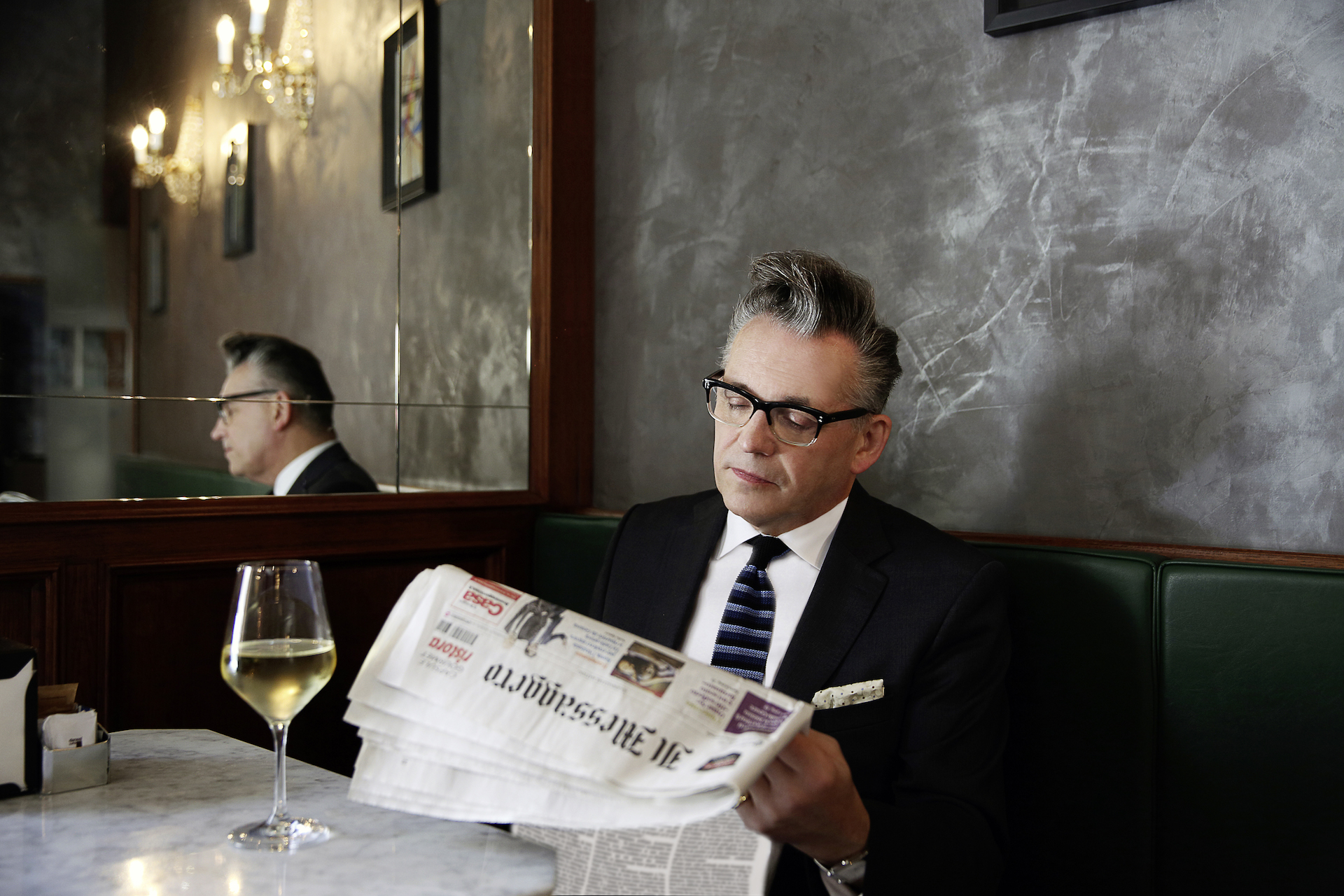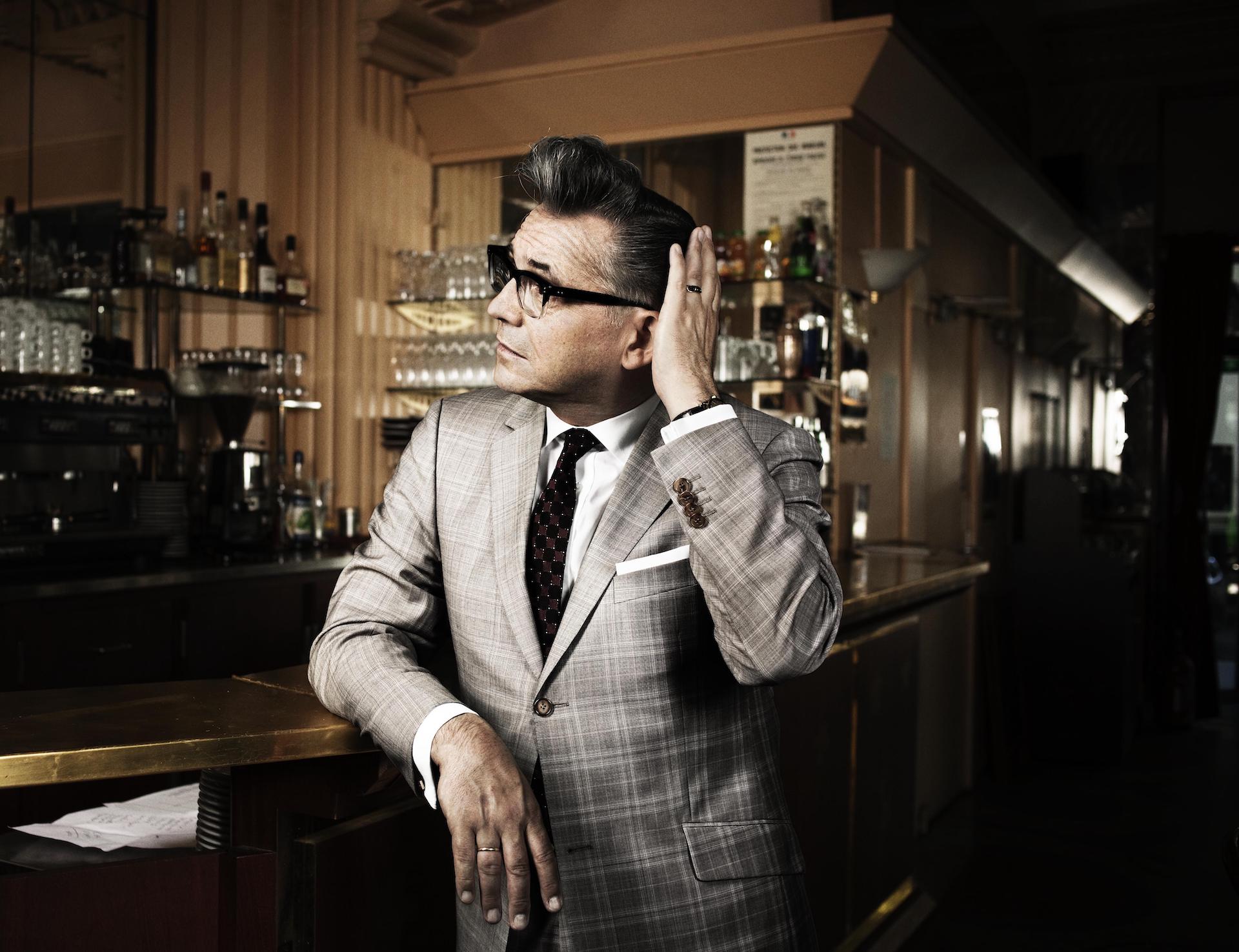Style Questions
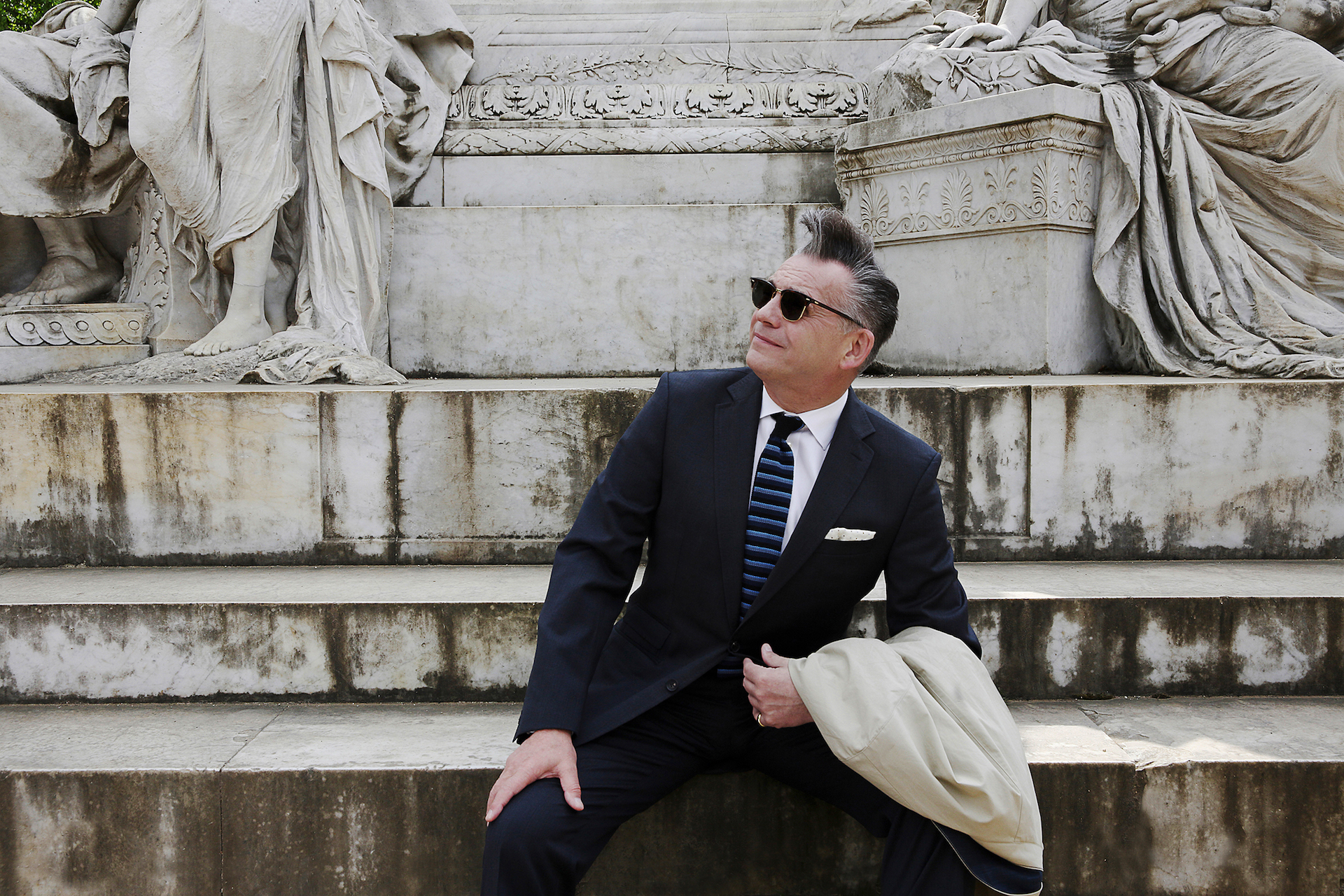
Text: Olaf Adam; Photos: Fabio Lovino, Jerome Bonnet, Bill Douthart, WDR
This article originally appeared in 0dB - The Magazine of Passion N°3
Singer, musician, host, entertainer – for more than four decades, Götz Alsmann has been constantly on the move as a kind of traveling salesman in matters of entertainment. And he has always remained true to himself.
“I never felt like I was missing out on anything at home.”
Götz Alsmann is a Münster native for life, that much is certain. He was born there, has lived there all his life, and has no intention of changing that. This seems to irritate many people who work in media, because he is repeatedly asked in interviews to justify why Münster of all places? The explanation is simple. From a young age, Alsmann has traveled all over the country for professional reasons, constantly on the road as a musician and later also for television. “And everywhere I went—whether Munich, Berlin, Hamburg, or elsewhere—the locals would go to great lengths to explain to me how awful these metropolises, which I had been so looking forward to, actually are. That’s probably why, unlike many others, I never felt like I was missing out on anything at home.”
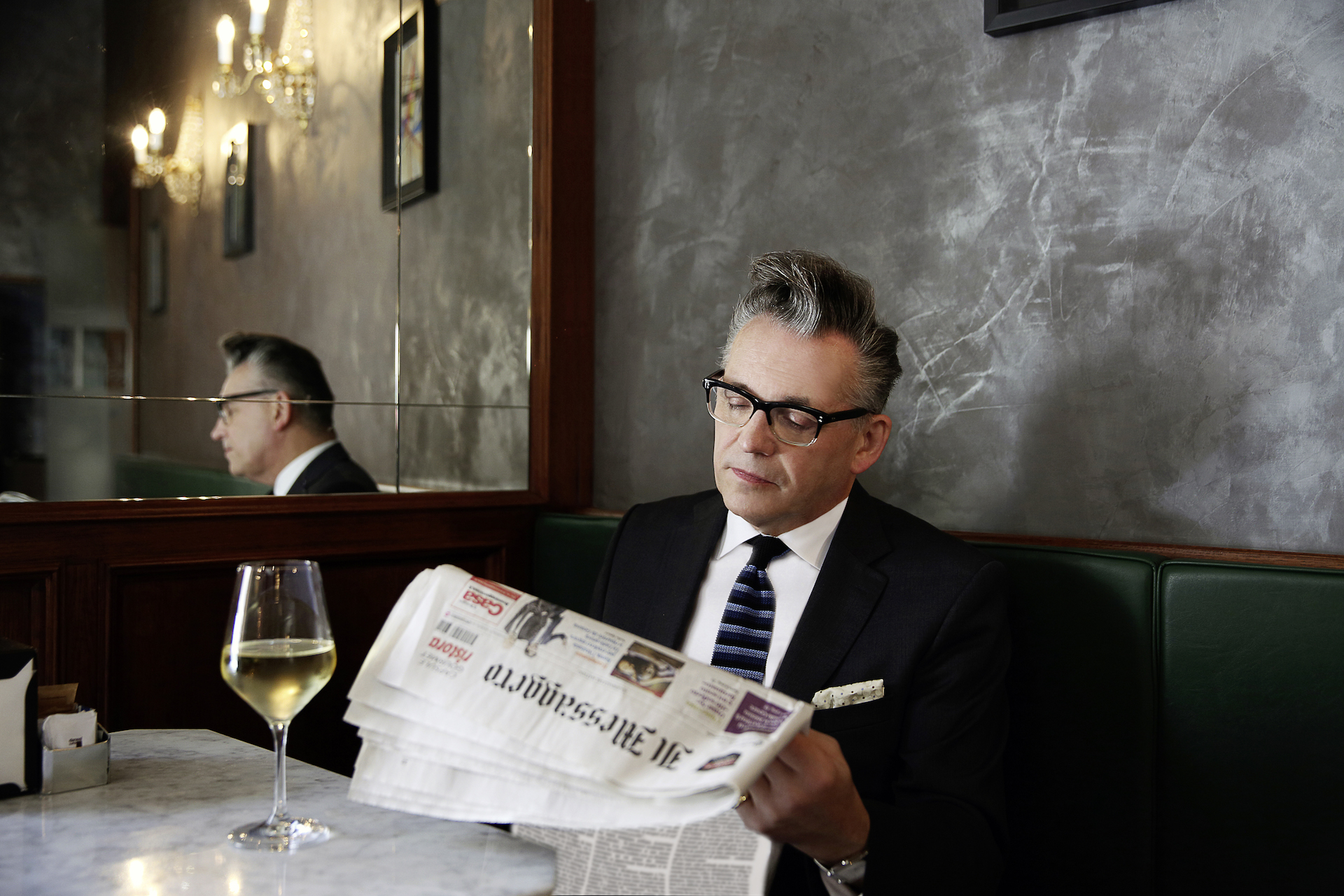
“I really like it in Münster. The city is big enough that you can do, get, and experience everything you want. At the same time, you still have the feeling of living in a manageable community. And besides, Münster is a much younger city than many might think. With a population of 300,000, we have over 60,000 students, which of course shapes the city.”
Unmistakable style
It was here in Münster that Götz Alsmann developed his unmistakable style. Suit, tie, and pocket square are simply part of his look. Of course, Alsmann is an entertainment professional and cultivates this style quite deliberately as his trademark. But it actually came about for very different reasons.
“There was a men’s outfitter in Münster that I fell in love with as a young man. You’d go in, get some advice, and in 15 minutes you’d have a new jacket and new shoes. Then you’d stay a bit longer and have a coffee or sometimes a whiskey. That seemed a lot better to me than constantly worrying about which style of jeans was currently in fashion. Plus, this way I don’t stand in front of my closet every morning facing the basic decision of what clothes are appropriate for the day. In that sense, it’s absolutely practical to have your own style. And it saves a lot of time.”
The beauty of imperfection

For all his pragmatism, you can probably attribute a touch of personal vanity to Götz Alsmann. He likes himself in his suits, which may be “retro,” but never seem old-fashioned. He sometimes combines his fashion repertoire boldly, but always tastefully. So style does have something to do with beauty, right?
“First of all, style is also a kind of protective function. Regardless of whether it’s appropriate for the situation – having your own style, a personal touch, always gives you confidence. Besides, beauty is absolutely subjective and depends on the times, on fashion, on personal attitudes, on how easily influenced someone is. Speaking objectively about beauty is almost impossible. For example, we only perceive the beauty of music if it comes from a cultural circle we know. Architects and mathematicians have thought about measurable aesthetics, but is that true beauty?”
“Some time ago, I interviewed Nikolaus Harnoncourt for Arte, and we came upon the concept of ‘golden beauty.’ By this he meant the moment when a musician really dares something while playing, but totally messes it up. But at least he was searching for golden beauty. That’s the kind of beauty that can also be found in imperfection. Sometimes, it’s just the idea that counts.”

The break in Schlager
Many people mainly know Götz Alsmann from television. Even though he owes the greatest success of his career to this medium with 20 years and over 700 episodes of “Zimmer frei,” he admits he only ended up there by chance. The Münster native’s greatest passion has always been music, especially German-language Schlager. But by his definition, it doesn’t really exist anymore. “At the end of the 1960s, there was a break in Schlager. The music that ran in the ZDF-Hitparade from the seventies on—by artists who only ever appeared in that show—was essentially the surrender of Schlager. The real Schlager from the period between 1880 and 1965 was mainly written, composed, and penned by conventionally trained musicians. These musicians—Michael Jary, Heino Gaze, Peter Kreuder—were in some cases very ambitious. Jary even studied with Stravinsky. And these experts eventually made the perhaps even painful move into entertainment music.” But what happened to turn this pleasant, yet never simplistic, entertainment music into the meaningless mush that people now associate with the term “Schlager”?

“Many of the musicians who shaped Schlager from the seventies on had actually set out to have careers as beat musicians. After failing in their attempts to become the new Rolling Stones, they started writing Schlager with their limited musical resources. Conversely, this unfortunately led to musicians who actually made good new Schlager—like Udo Lindenberg or Reinhard Mey—defining themselves as rock musicians or singer-songwriters. Such terms are really just marketing labels in the end, and these musicians simply chose a different label. Roland Kaiser was almost the only one who could pass a quality test in conventional Schlager.”
Vinyl hype saves the album
It’s hardly surprising that Götz Alsmann is a self-confessed fan of vinyl records. In the early 2000s, he even managed to convince WDR to give him a show called “Einfach Alsmann,” in which at the end of each episode a song was recorded live as a direct-to-disc cut on vinyl in front of the cameras. And especially as a musician, he is very fond of vinyl records, which is why he welcomes the ongoing vinyl hype.
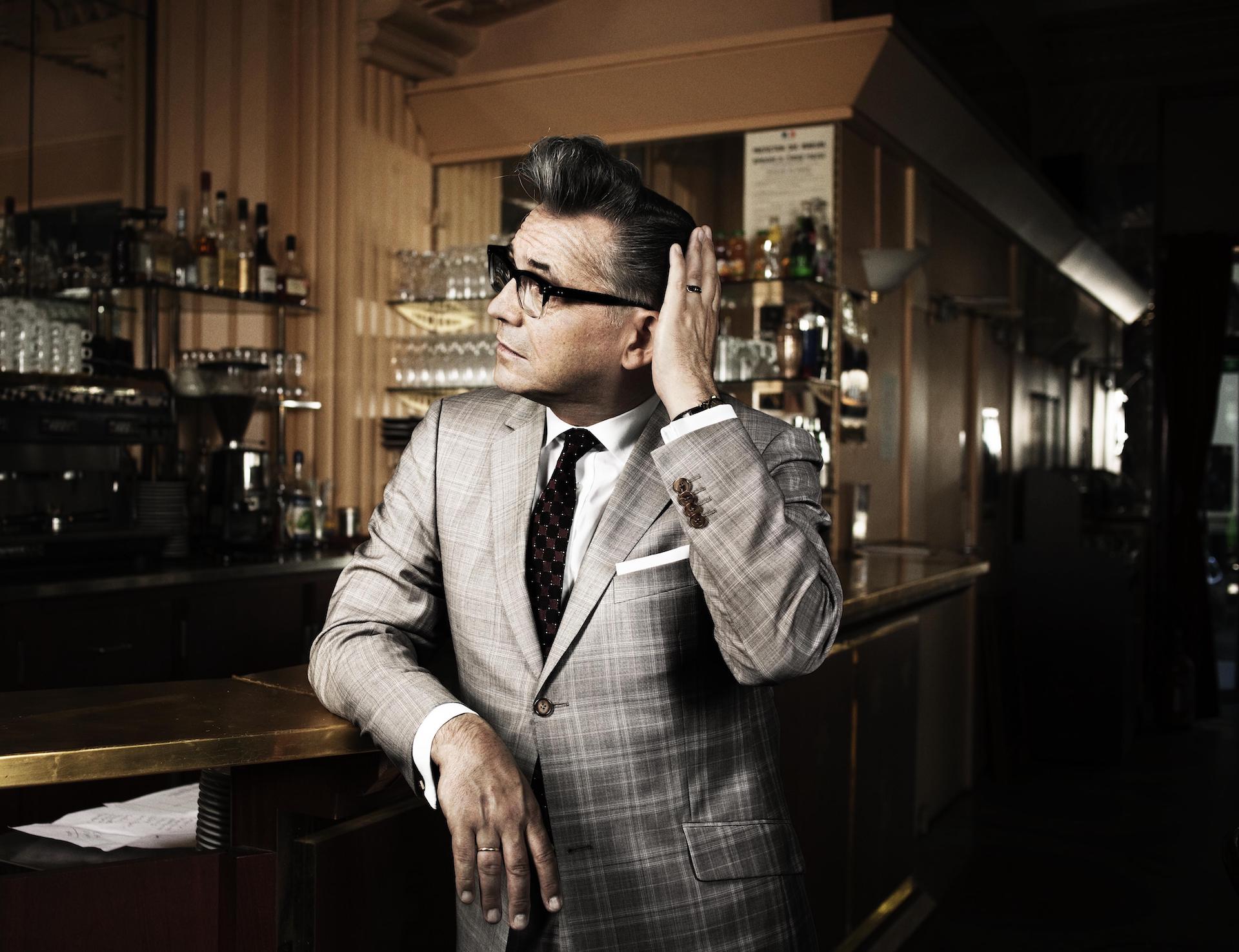
“The CD as a medium is undoubtedly on its farewell tour. On the other hand, the vinyl LP is experiencing a remarkable revival. It will never catch up with streaming, but it will certainly remain a lovely and fairly widespread hobby. This helps keep the album alive as an art form. In streaming, the album is barely noticeable, whereas an LP or even a double LP can present the listener with an artistic whole, just as the musician intended. That’s why I take this ‘hype’ absolutely seriously and I’m happy about it. Even though I’m convinced that many who are making a big fuss now will have a different hobby in five years. Maybe they’ll be building model railways or restoring retro bikes or something like that. But as long as there are people who keep up this charming hobby, we as musicians still have a physical format for our music. And that makes me happy.”
New York, Paris, Rome, Münster
Recently, Götz Alsmann completed an ambitious musical project. For a trilogy of albums, he traveled with his band first to Paris (2011), then to New York (2014), and finally to Rome (2017), to record chansons, evergreens, and Schlager hits from each country in legendary studios. Each of the three albums was and is followed by extensive concert tours with countless dates in large and small cities across the country. This life, always on the road, has long since become second nature for Götz Alsmann; it doesn’t bother him. Because in between, there’s always a chance to go home for a few days. Back to Münster.
Info: Götz Alsmann
Götz Alsmann was born in 1957 in Münster and studied musicology there. Since the early 1970s, he has been a professional musician and has recorded dozens of albums over the course of his career. Since 1988, he has been performing with the Götz Alsmann Band in almost the same line-up. After first experiences as a radio host, he moved to television in the mid-1980s. His greatest success was the cheerful, anarchic live show “Zimmer frei,” which he hosted together with Christine Westermann between 1996 and 2016. He is currently on tour with the program “Götz Alsmann ... in Rome.”
Dates and further information:
You can find more about this at www.goetz-alsmann.de

